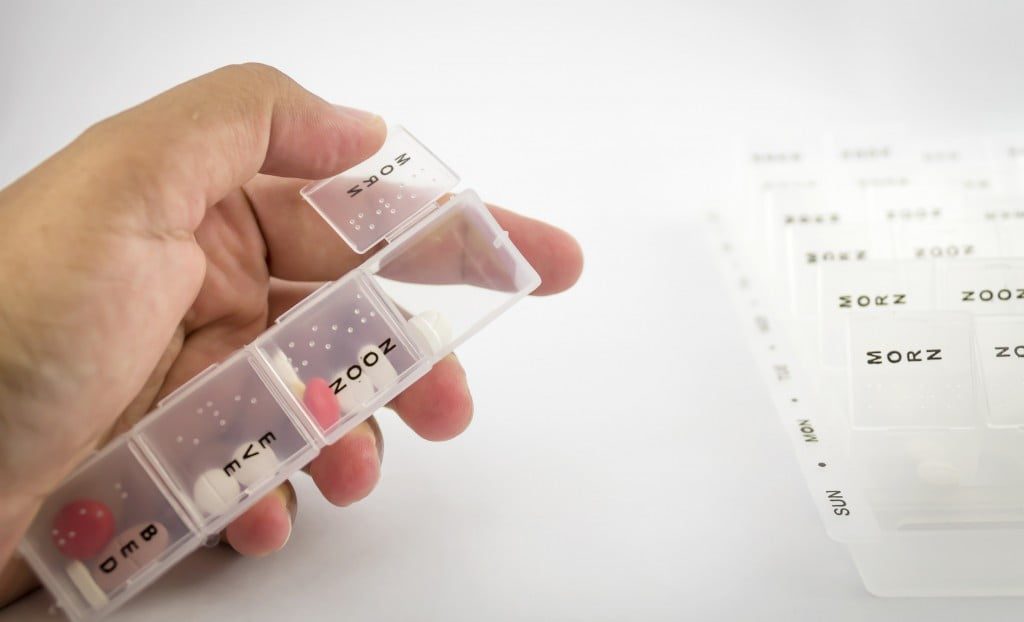
The right medication is critical for health and well-being in seniors. Yet, medication can also be complicated – and sometimes dangerous. In fact, around 100,000 seniors are hospitalized each year for drug-related side effects.
Most of these events are tied to 4 types of medications.
So, which medications are the most dangerous and what can you do to improve safety?
The Riskiest Medications
The 4 types of medication that can cause significant issues are these:
- Warfarin. This is commonly used to treat blood clots and acts to thin the blood.
- Antiplatelet drugs. This category includes various medications that thin the blood, such as aspirin.
- Insulin. Insulin injections are common for managing blood sugar levels.
- Hypoglycemic medications. This includes various medications to lower blood sugar that are taken by mouth.
All of these medications offer many advantages and are often critical for keeping seniors healthy.
Why so many hospitalizations?
In most cases, the problem is mostly to do with the way the medication is used, rather than simply a side effect of the drug.
For example, warfarin and antiplatelet drugs both thin the blood. This helps reduce the risk of clots but it also increases how readily people bled. The strength of the effect also means that too much medication can be dangerous.
There is also a considerable number of drug interactions with these medications. For example, many over-the-counter painkillers will increase bleeding and decrease coagulation.
The effects aren’t just limited to medication either. Instead, any supplement or food that thins the blood can increase risk. High intake of vitamin K through food or supplements can also impact the effectiveness of warfarin.
All of these issues increase the risk of excessive bleeding and blood thinning. The significant impact of the medications makes it critical to take the right dose. For some seniors, this can be a challenge – and there is a risk that they will forget. If that happens, the senior may end up skipping their dose or taking two doses (or more) in the same day.
Treatment with warfarin can also be complicated. This may include seniors needing to have their INR responses checked regularly and dosage adjusted.
That process can add to the complexity and increases the risk that the medication will be taken incorrectly.
A similar pattern happens with the other two drug types, both of which impact blood sugar. Decreasing blood sugar too far can be dangerous and can lead to many symptoms, including shakiness, confusion, unsteadiness and increased risk of falls.
Once again, there is a range of interactions that can occur. Additionally, diabetic patients do need to pay close attention to the food that they eat, which can create challenges as well.
There are also other medications that put seniors in hospital. This often happens as the result of interaction effects or taking the medication incorrectly. But, seniors can also simply have reactions to medication – even when they’re doing everything correctly.
Reducing Medication Risk

Side effects of these medications (and for others) can be scary and seem overwhelming. But, they don’t have to be. Instead, there are simple approaches you can take to decrease the risk of hospital visits.
Watch Out for Symptoms
In many cases, you’ll see side effects of incorrect medication use before the issue becomes serious. For example, excessive blood thinning can lead to increased bruising.
If this happens, it may be an indication of an interaction or may suggest that the medication dose needs to be adjusted. In fact, anything that suggests extra bleeding is a cause for concern. This can include the following:
- More frequent bruising
- Bruises developing easier
- Bleeding gums
- Bleeding continuing for longer than normal after a basic cut (e.g. a cut from shaving)
- Red or brown urine
- Red or black stools
Other side effects can include bad stomach pain, a severe headache or a fall.
For diabetes medication, keep an eye out for anything that indicates low blood sugar. Key symptoms include:
- Blurry vision
- Rapid heartbeat
- Mood changes or nervousness
- Shaking
- Dizziness
- Difficulty concentrating
- Fatigue
- Skin tingling
In many cases, seniors may not be able to recognize these symptoms themselves.
Some stubborn seniors might also ignore symptoms. For example, this sometimes happens when seniors don’t want to see a doctor or go to the hospital.
As a result, it’s important for caregivers to monitor symptoms and be aware of when the senior’s responses or behavior is unusual.
Talk to The Doctor if There Are Problems
It’s also worth talking to the doctor if there are concerns about current medications. For example, some medications will have frustrating side effects, such as weight gain or increased difficulty sleeping.
There will often be alternative medications that offer similar benefits with fewer side effects.
Medication does often end up being a balancing act. This means that doctors may try out multiple combinations to find what best suits the patient. Those choices may also vary over time as needs change and new medications are available.
So, don’t be afraid to rock the boat and look for better solutions.
Know What to Do
Another important approach is simply knowing how to respond to issues.
For example, if your family member misses their dose for the day – what do you need to do? This will vary depending on the medication and the senior, so you can’t always look it up online.
Instead, you’ll need to talk to the pharmacy or the senior’s doctor to figure out the best approaches.
You can also find out when seeking emergency treatment is appropriate. This is another way to promote safety and means you can act promptly when needed.
Medication Management
There are various medication management systems and apps that you can turn to. Some of these are simple, like a basic pillbox and a reminder app, while others are more complex.
Such approaches help seniors and caregivers to make sure that the right medication is taken when needed. This reduces the risk of doses being skipped or of multiple doses being taken on the same day.
Check for Interactions
Interactions with medication aren’t always obvious. As such, it’s normally best to talk to the doctor about any new additions to the diet and lifestyle.
This includes options such as herbal supplements. Even changes to the diet can be relevant, especially if they are dramatic. For example, significant calorie restriction for weight loss can have unexpected impacts, as can cutting out food groups.
Even if you’re certain there’s no risk, talking to a doctor before any change is simply prudent. It’s certainly better than finding out about an unexpected interaction after a fall or a hospital visit.
Promote Wellness
One final way to decrease hospital visits from medication is to increase wellness overall. This includes areas like making sure the senior gets enough sleep, exercise, good nutrition, and social connection.
Staying healthy can help improve resilience and often means that the senior is better able to recognize problematic symptoms. In some cases, these approaches may decrease the risk of side effects as well.

Leave a Reply